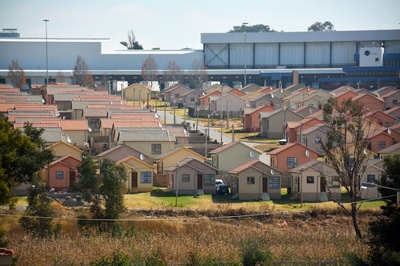PERSPECTIVES
Social Impact Investing Breathes New Life into the South Africa Gap Housing Market
December 11, 2014
Citi is the title sponsor of the It's Africa's Time series, which focuses on how businesses can help advance the United Nations Millennium Development Goals. In this episode, which began airing on CNBC in sub-Saharan Africa earlier this month, we travel to South Africa to explore how social impact investing is breathing new life into the gap housing market.
Since the advent of democracy in South Africa, the government has done much to change the status quo for the poorest of the poor in the form of free medical services, social grants and government-built housing. But there is another economic income group with their own little-known set of problems. They have succeeded in rising out of poverty, and make up 30 percent of the population. Their aspirations are - like all of us - to live a better life, in homes they can afford to own or rent, in well-run urban apartment blocks or neat, well-serviced suburbs. Ade Ayeyemi, CEO for Citi in Sub Sahara Africa says, "There is still segregation in the real estate market. Of the 12 million households in South Africa, about five-and-a-half million fall into the workforce income group and there is a shortage of supply of housing for this sector."
Having identified this huge gap in the market, Soula Proxenos, a South African banking and development expert, came up with a plan. In 2000, she started a residential real estate fund, which finances affordable housing and rental stock in low - to middle income, gap-housing sector. It would address the needs of people -including many of those living in townships - who were now financially capable of moving to better living quarters, if only they could find some. "The idea was to bring capital into the affordable housing space in South Africa," Proxenos says. "This is where people can afford to buy houses, but the private sector has not been able to provide them."
With global investment partners like Citi, Proxenos's $230 million South African Workforce Housing Fund has so far developed over 28,000 urban and suburban homes and apartments, and is looking to expand the model into the rest of Africa.
"For us, social impact investing is about providing the kind of housing that more and more people are able to afford while obtaining healthy financial returns for our investors," says Proxenos. "It's a wide open, very attractive market for all concerned." She and her team at International Housing Solutions are determined to provide opportunities for investors all over the world -- and in the process change the lives of many people in Africa. Find out more at www.ihsinvestments.co.za and join us for an exciting episode of It's Africa's Time to see these dynamic individuals prove that being both socially aware and business-minded don't have to be a contradiction in terms.
Sign up to receive the latest news from Citi.
Select Preferences
